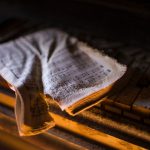“If such a terrible time is coming in Europe, which we in depending America are like to share in, the more we need we have of joining in earnest and constant prayers for extraordinary suffering graces for ourselves and others.”
These words, composed by five Congregationalist Boston ministers in winter 1747, could have been written this week.
Despite the difference in time and circumstances, we share with them a principal concern. Beneath the politics and the pandemic, there is a deeper sickness: spiritual apathy, nominal Christianity, and global unbelief. Millions around the world suffer without the hope of Christ.
Despite differences in polity and politics, these men wondered, couldn’t we stand united in prayer—across time and distance—for the sake of the Jesus we, together, love? What might God be pleased to do if we asked him for global revival, for the expansion of the glorious gospel of his beloved Son?
It Happened Before
Five years earlier, in 1742, a number of Presbyterian congregations in the south of Scotland had committed to regular, united prayer. Their plan was simple and earnest. They vowed to set aside a portion of every Saturday evening for “prayer that our Lord’s kingdom may come, joined with suitable praises.”
This could be done with a friend, as a family, in small groups, or in larger gatherings. The form was flexible, but the purpose was clear—to overcome their own spiritual apathy, to plead for revival, to give thanks “for any remarkable waterings [God] has given to some spots in his vineyard, and to pray that these may only be the forerunners of a plentiful shower to refresh the whole.” United in heart and purpose, these gatherings became known as “concerts” of prayer.
Ministers wrote their friends in other places, encouraging them to adopt this practice. In his correspondence with friends in Scotland, Jonathan Edwards (1703–1758) heard of these concerts and saw them as the clear reflection of what Scripture itself commends. Prayer is the means God appoints to accomplish his saving work in the world. Edwards immediately wrote a booklet joining his voice to theirs in a “humble attempt to promote explicit agreement and visible union of God’s people in extraordinary prayer for the revival of religion and the advancement of God’s kingdom on earth.”
To this booklet the four Boston ministers added their shared hope that Christians might pray at the same time on the same day for the same thing: that the good news of King Jesus would overspread the world, that those who suffered in darkness would see and find lasting hope in the light of men.
Prayer is the means God appointed to accomplish his saving work in the world.
And the rain came. More awakenings sprang up in Wales, in Ireland, in England, and in North America—so many, in fact, that history would come to collectively call these “remarkable waterings” the Great Awakening.
The concerts of prayer and Edwards’s Humble Attempt had far-reaching effect. Nearly 50 years later, the booklet fell into the hands of several Baptist ministers in the midlands of England. They called on churches across the country to revive the practice of regular, united, extraordinary prayer—especially in the hopes of a fresh outpouring of God’s Spirit on the nations. And God answered in a surprising way—raising up several of these very ministers to form the Baptist Missionary Society (1792) and calling one of them, William Carey (1761–1832), to give his life to gospel ministry among the inhabitants of India.
While we’re accustomed to thinking of these awakenings primarily in light of the evangelical preaching of Whitefield, Wesley, Edwards, and the missionary courage of Carey, Ward, and Marshman, it was Christians across many denominations with faith like Elijah who prayed that the distant handbreadth cloud would become a soaking, reviving rain. And God heard.
It Could Happen Today
And he still hears. Times of suffering and crisis are a prompt for God’s people to, again, link arms across oceans and denominations in visible, united, extraordinary prayer.
What might God be pleased to do if we set aside a portion of Saturday nights, and, in our homes, through Zoom (separately, together), prayed for God’s revival work in our day?
United, let’s pray.
Is there enough evidence for us to believe the Gospels?
 In an age of faith deconstruction and skepticism about the Bible’s authority, it’s common to hear claims that the Gospels are unreliable propaganda. And if the Gospels are shown to be historically unreliable, the whole foundation of Christianity begins to crumble.
In an age of faith deconstruction and skepticism about the Bible’s authority, it’s common to hear claims that the Gospels are unreliable propaganda. And if the Gospels are shown to be historically unreliable, the whole foundation of Christianity begins to crumble.




































